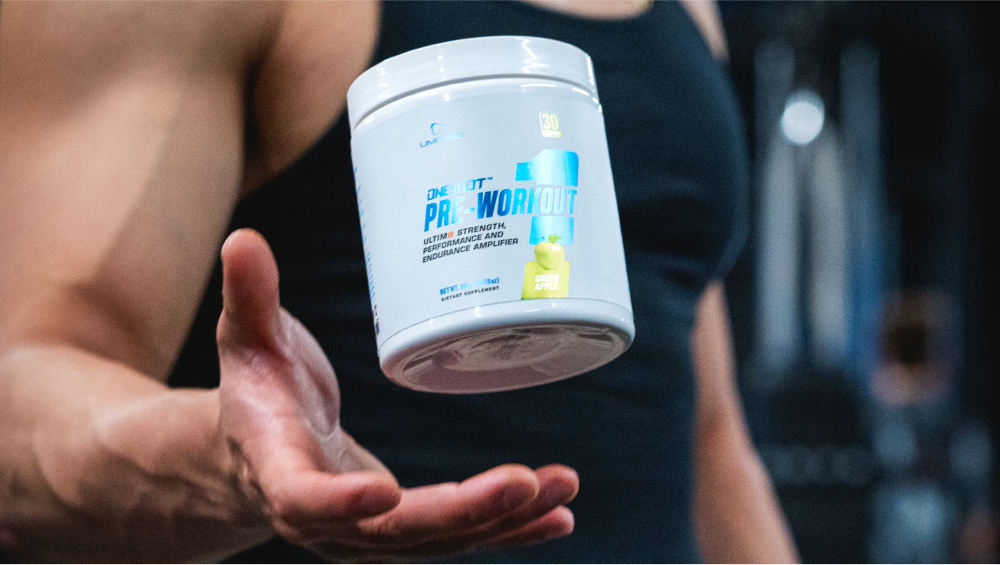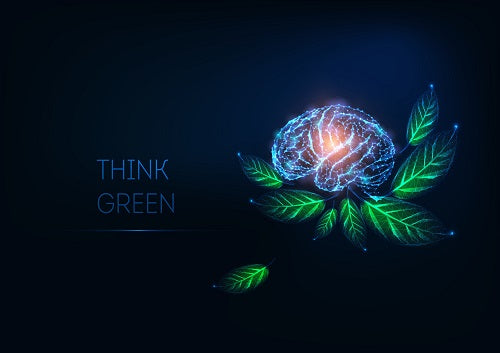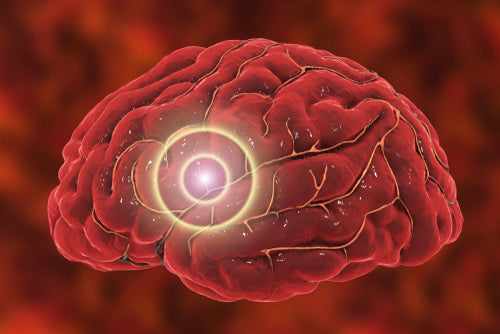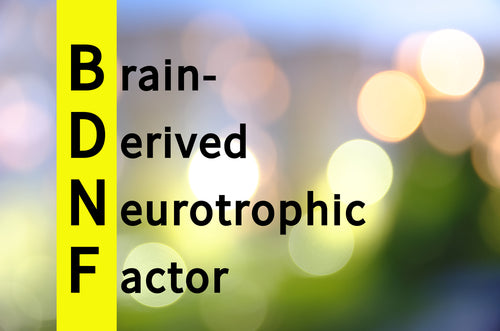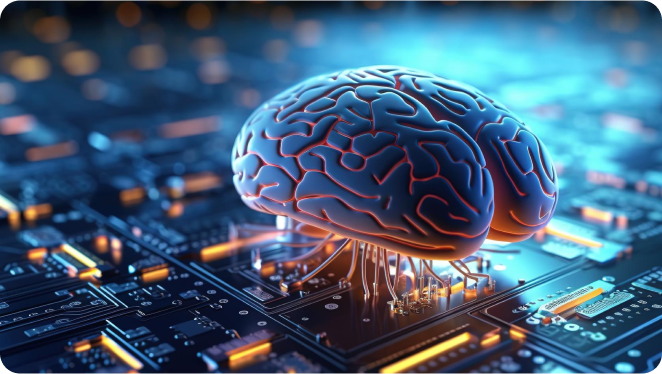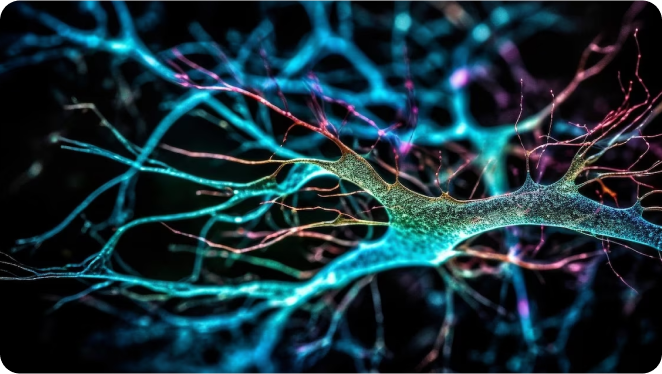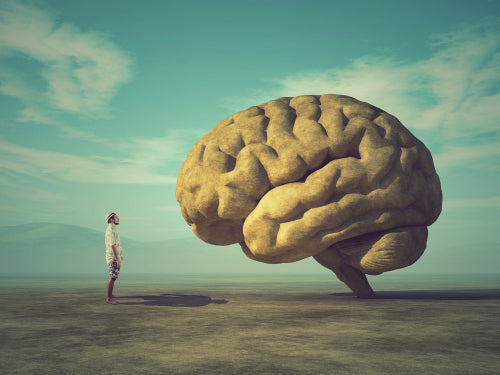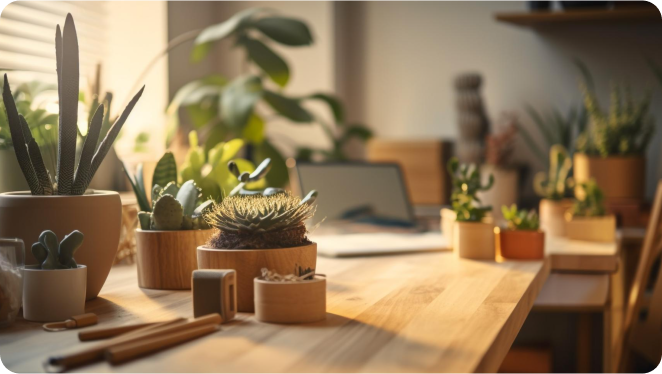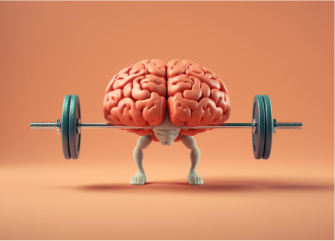Learning is a lifelong process. And as we take in new information daily, it's important to find ways to learn more effectively and efficiently.
This can be particularly challenging when we're dealing with complex subjects or information overload. Fortunately, the brain is capable of learning quickly and retaining information longer, providing we exercise and train it.
In this post, we'll show you the power of brain training and how to learn better and faster.

What Does the Learning Process Look Like?
Learning is a process that never really stops. It all begins when we're infants, and we take in everything around us, from how to crawl to how to speak.
But as we grow older, the process of learning becomes more challenging, especially when we have more pressing responsibilities like work or family. Whether we're trying to master a new skill or advance our careers, learning efficiently and quickly is a must.
Before we dive into the tips and tricks, it's essential to understand how the brain processes and stores information. The brain processes information through various regions, such as the prefrontal cortex and hippocampus. These regions first intake information, process it, and then store it in short-term memory.
However, if you want the information to stick long-term, it needs to be encoded into the brain's long-term memory. A great way to encode information is by using visual aids, like mind maps or diagrams, since these help the brain link new information to already existing knowledge.
Time is of the essence when it comes to learning. Whether you’re learning a new language or mastering a new skill, it's crucial to invest the right amount of time.
Unfortunately, there is no magic number for how much time one needs to learn something effectively. However, research shows that 20-25 hours of learning something new can lead to significant progress and make one reasonably proficient in that particular area.
Ideally, breaking up those hours into shorter, focused study sessions is ideal for retaining information. Short-term memory should be used as a stepping stone for encoding information to long-term memory. However, short-term memory has its limitations, and it can hold only up to seven items at any given time.
On the other hand, long-term memory is limitless and is where you want to store important information. A great way to store information in long-term memory is by practicing the recall of that information regularly.
How to Learn Faster and Better: Proven Learning Strategies to Try
Learning is a continuous process that will always come in handy at any given point in our lives. Whether you are a student, an aspiring professional, a passionate learner, or you just want to expand your knowledge base, there are effective ways to improve your learning abilities.
However, different people have different learning styles, and one strategy or approach that works for someone else might not be suitable for you. Here are some tips.
Avoid Cramming
Many students cram their studying into a night before a test frenzy, and although it might work in the interim, it is not an effective long-term learning technique.
Cramming puts undue pressure on your mind, and while you might remember specific details of what you learned, you won't generally get to understand the concepts or learn them.
Studying in small chunks over an extended period is the most effective. It gives your brain time to process information and store it in your long-term memory.
Try Mnemonics
Mnemonics is a memory technique that can help you retain information easily. You can use mnemonics in different ways depending on your learning style.
For instance, you could adapt the acronym approach, where you come up with a phrase that contains a word in each letter of an acronym. It will help you remember the information more easily. Mnemonics helps you link information in a way that your mind can quickly retrieve it faster and improve your learning retention rate.
Focus on Active Learning
Active learning is one of the best ways to learn faster and efficiently. Instead of only reading and listening when learning, try doing different activities that involve your mind and body.
For instance, if you're learning a new language, try speaking, writing, and even singing in that language. If you're mastering a new skill like cooking, try different recipes to incorporate the new knowledge. When you're actively engaged, your brain is stimulated, and you're more likely to retain the information better.
Practice Good Note-Taking
Taking notes can be an effective way to help you remember what you've learned long after the lesson is done. However, note-taking should not be concentrated only on writing down what a teacher or a presenter is saying; it should be focused on transforming what you have learned into your own words.
One effective method is to rephrase the information into your own words, explanations, or diagrams. This level of engagement makes it easier to remember and understand the information, which will ultimately improve your overall learning.
Spaced Repetition
One of the most effective ways to learn faster is through spaced repetition. This method involves breaking down the information into small chunks and studying them repeatedly, with increasing intervals of time between each repetition.
By doing this, you can transfer the information from short-term to long-term memory, ensuring that you retain the knowledge for a more extended period. Using flashcards or a spaced repetition app like Anki or Quizlet can be an excellent way of implementing this method into your study routine.
Avoid Multitasking
Contrary to popular belief, multitasking can actually hinder your learning speed. When you try to juggle multiple tasks at once, you often end up doing neither of them well. Your attention is divided, making it difficult for you to retain information.
Instead, try focusing on one task at a time, and give it your full attention. This will allow you to absorb the information more effectively and enable you to better understand complex concepts.
Work in Dedicated Study Sessions
It's easy to fall into the habit of procrastination and cramming. However, this can be detrimental to your learning speed and efficiency. Instead, try setting aside dedicated study sessions for each subject or topic.
This will give you a clear timeline and motivate you to be productive during that time. Make sure you minimize any distractions such as social media or phone notifications during these periods, to help you stay focused.
Take a Ten Minute Break
While it's essential to stay focused during your study sessions, it's also crucial to take breaks. Taking a ten-minute break after an hour of studying can help you recharge and avoid burnout.
However, make sure you use this time wisely - go for a short walk, grab a snack or a cup of coffee, or simply rest for a few minutes. Avoid getting sucked into distractions like social media, which can leave you feeling more drained than before.
Avoid All-Nighters
Pulling an all-nighter may seem like a good idea when you're facing a looming deadline or an exam. But the truth is, sleep deprivation can hurt your cognitive abilities, memory, and attention span.
Your brain needs sleep to consolidate new information and form long-term memories. Instead of sacrificing sleep, plan ahead and manage your time wisely.
And if you need an energy boost, try remedies like NZT-48 the Limitless Pill. contains key ingredients like huperzine A, ginkgo biloba, alpha GPC, and theobromine to give your brain the boost it needs for a great learning session.
Do Self-Testing
One of the most effective ways to learn and retain information is through active recall. This means retrieving information from memory, instead of simply reading or listening to it. Self-testing can help you strengthen your memory and identify knowledge gaps. Try creating flashcards, taking quizzes, or solving problems related to the material.
Don't worry about getting everything right the first time; mistakes and errors can help you learn better. By self-testing, you can also boost your self-confidence and reduce test anxiety.

Get Enough Sleep
As mentioned earlier, sleep is essential for learning and memory. Your brain needs rest to consolidate new information and integrate it with existing knowledge. Lack of sleep can impair your creativity, decision-making, and productivity.
To promote optimal sleep, try to establish a regular sleep routine, avoid caffeine or alcohol before bedtime, and create a relaxing environment in your bedroom. If you struggle with falling asleep, try meditation, deep breathing, or listening to soothing music.
Write Things Out
Rewriting what you learned in your own words is essential in your learning journey, and it ties into our previous point on note-taking.
Just like with note-taking, writing things down in your own words requires you to actively process information, and this will help you understand it better. Writing down information in your own words helps you retain it in a much more practical and intuitive way, making it easier to retrieve the information when you need it.
Try Making a Mind Map
A mind map is a visual representation of information that can help you better understand relationships between ideas. To make a mind map, start with a central theme or idea and work outward by connecting related concepts with lines. This method harnesses your creativity and helps you retain information in a more meaningful way. Plus, it's more fun than traditional note-taking!
Outline or Highlight Main Points
Another effective way to learn faster is to outline or highlight key points. This method helps you focus on the most important details of a topic while also providing a study aid for later use. You will find consolidated information much easier to absorb than scattered bits of information.
Identify Your Learning Styles
Understanding your learning style is key to learning faster and better. Some people prefer visual aids, such as diagrams and even YouTube videos, while others prefer reading and note-taking. Identifying your preferred learning style can help you tailor your study methods to suit your needs.
Try the Pomodoro Technique
The Pomodoro Technique is a time-management method designed to improve productivity and prevent burnout. It involves working on a task for 25 minutes, followed by a five-minute break. After four work sessions, you take a longer break. This method helps improve focus, which can lead to deeper learning and retention of information.
Mute Notifications
One of the most frequent obstacles to our focus and comprehension is distraction. Social media notifications, incoming messages, and even email notifications can interfere with our concentration, leading us to lose track of what we are doing. Therefore, it is essential that you remove all notifications to reduce the chances of being distracted while studying. Mute your phone notifications, log out of social media, and concentrate on what you are studying.
Avoid Rote Memorization
Learning should be interesting, not tedious. If you use rote memorization methods, you are not learning, you are just memorizing the data. The memory is where learning and rote memorization differ the most. It's effortless to forget what we tried to force into our heads.
Understanding what we learn and being able to integrate it into our daily lives is the best way to extend it to long-term memory. Use a variety of examples and stories to evoke long-lasting memories and support connections.
Boost Your Brain Cells with a Supplement
The brain is a powerful machine that has the capacity to learn, retain, and recall information with greater efficiency and speed through brain training techniques.
By prioritizing sleep, adopting active recall, getting moving, using spaced repetition, and taking breaks, you can train and optimize your brain for better learning and faster retention. Incorporating these techniques into your daily routine can lead to a more rewarding and productive learning experience.
NZT-48, the Limitless Pill, is a powerful nootropic supplement that contains key ingredients such as huperzine A, ginkgo biloba, alpha GPC, and theobromine. These ingredients work together to enhance your brain's performance by increasing blood flow, boosting neurotransmitter production, and promoting neuroplasticity.
With regular consumption of this supplement, you can see an improvement in your cognitive abilities, memory, and attention span.
Incorporating NZT-48 into your daily routine can help you take your learning and productivity to the next level. Imagine being able to absorb information faster, remember things for longer periods, and stay focused on tasks for extended periods. With NZT-48, all of this can become a reality. Give it a try today!











